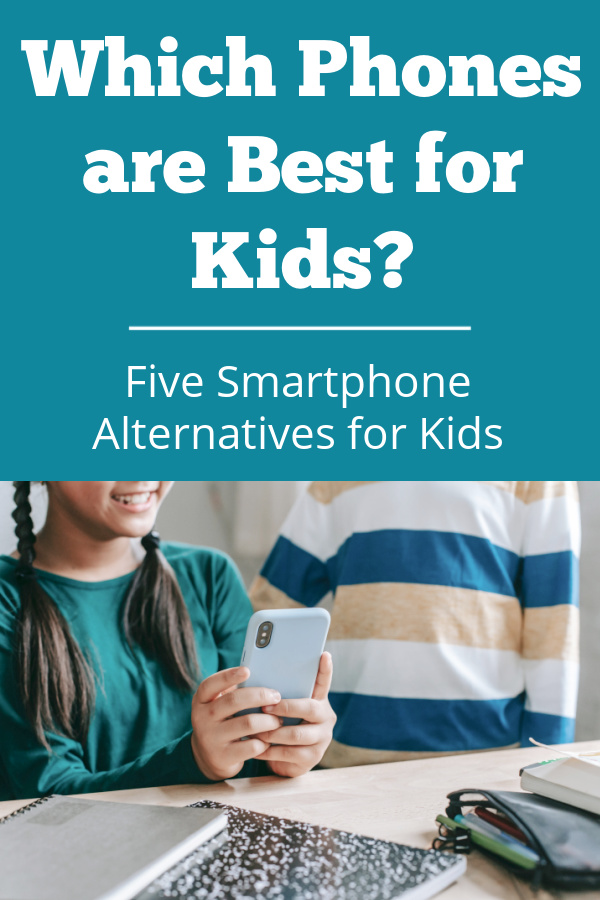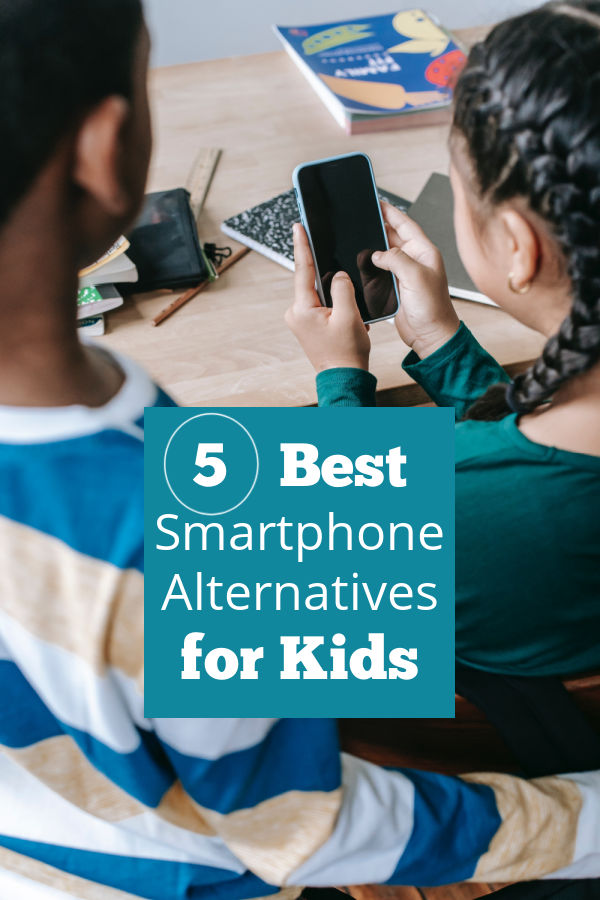
If you’re a parent, you know the question is coming. It’s just a matter of time. In fact, it might just be the new dreaded parenting question, right next to “How are babies made?” This one is:
“When can I get a cell phone?”
It’s not surprising that kids start asking about phones (and being handed them) at earlier and earlier ages. For most kids, screens, from household TVs, to tablets, and parent or guardian smartphones, are present from day one. Recent studies have shown that kids are getting phones earlier than ever.
According to Common Sense Media, “Tech use is aging down as young people get devices earlier. A majority (53%) of kids have their own smartphone by the time they are 11, and 69% have one at age 12.”
But what if you’re not comfortable with the idea of your child having a smartphone just yet? If that’s how you feel, you’re not alone! Even while more kids are getting smartphones at earlier ages, a growing movement of parents, educators and activists are sounding the alarm and encouraging families to wait.
Why More Families are Choosing To Delay Smartphones for Kids
Don’t be fooled by the numbers, or your child telling you that “everyone but me has a smartphone.” More families are concerned about the impact of technology on kids, and for good reason.
Consider a few headlines from the past year:
● Facebook Knows Instagram is Toxic for Teen Girls, Company Documents Show (WSJ)
● There’s Worrying New Research About Kids’ Screen Time and Mental Health (TIME)
● Young Girls More Vulnerable to Online Predators Than Ever Before (NY Post)
● Cyberbullying: A Growing Problem (Science Daily)
There is more evidence than ever that high levels of screen time and social media interaction have long term negative consequences on children’s mental health and increase chances of depression and suicide. Here are just a few concerning statistics:
● Kids between the ages of 5-8 spend over 3 hrs per day on a screen (Common Sense Media)
● 82% of parents say they are concerned about their kids’ screen time (Parents Together Action)
● Reports of child online exploitation rose dramatically since the start of the coronavirus pandemic as kids spent more time online (WSJ)
● Numerous recent studies suggest strong correlation between social media usage, screen time, and increased risk of depression in adolescents (ABC News)
These are just a few of the reasons that more parents are deciding to wait and delay smartphone usage for their kids.
But does deciding to delay handing your child a smartphone mean being completely disconnected?

Not all Phones Are Created Equal
The good news is that it’s not all or nothing when it comes to kids and connection. It’s easy to think that it’s black or white – either open your child to a world of all the apps, sites, and content out there, or completely cut them off from communication.
But there are options! The important thing to consider is what approach is right for your child at the right age.
Here are a few questions to ask yourself about your child’s situation before considering what safe smartphone alternative is right:
- How mature is your child?
- How much time does your child spend away from you? Are they getting involved in more activities outside the house?
- Does your child struggle at all with separation anxiety?
- When would connection and getting in touch with your child be most important/useful?
Starting with these questions will help to guide you to the best safe starting point.
5 Best Kid-Safe Starter Phone Options
So you’re ready to consider some alternatives. Here are the best parent-loved smartphone alternatives to help kids take tech one step at a time.
- Home Phone/Land Lines: Remember the old curly-corded phones most of today’s adults grew up with? If your child doesn’t need much connection outside the house, but needs a simple way to get in touch when you leave, a simple landline could be the perfect answer!
○ Pros: Simple, safe, and totally internet free!
○ Cons: Not mobile, limited to the house only. - Dumb Phones / Flip Phones: Yes these still exist! Remember your first Nokia brick phone or the old Motorola Razr? They’re not always easy to locate through providers like AT&T or Verizon, but they do exist!
○ Pros: Generally durable, simple, and relatively safe from internet browsing and social media (though some do have internet access!).
○ Cons: Easy to lose, can be difficult for young kids to text with, sometimes hard to find, no GPS functions for location tracking. - Kids Smartwatches: A kids smart watch is an increasingly popular option as a first device for young kids with all the features for connection and safety, but without all the other stuff
○ Pros: Calling + GPS tracking (in the best models), wearable/hard to lose, blocking unknown calls/messages, protected against internet browsing, social media, etc., perfect for younger kids ages 5-11.
○ Cons: Many different models and feature sets (be sure to look for 4G connection, calling & texting, and GPS capabilities, along with proof of safety certifications), limited functionality for older kids. - Old / Reused Smartphones: Many parents consider this a good first step into more responsibility with tech. Parents will give kids their old iPhones or other devices without any service plan for use on wifi only.
○ Pros: Low cost, introduces kids to smart devices in a more controlled environment.
○ Cons: No way to stay in contact outside of wifi, still can have access to apps, internet, and social media without additional parental controls, may not have GPS tracking functionality, more vulnerable to cyber threats due to out-of-date operating systems. - Kid Friendly Phones: More options are appearing that give parents or guardians control over content and apps on special smartphones built for kids. Some models have only a set/limited array of functions options while others give guardians abilities to add kid-friendly apps and services.
○ Pros: Great for kids ready to graduate to the next level of ownership without all the extra baggage, some kids phone models give parents extra insights and control
○ Cons: Sometimes limited functionality or not attractive to older kids, often come without parent apps or have limited parental monitoring functionality.
One last reminder: there is no “right” option – it just depends on your child, your family, and finding the right fit. But be sure to consider these great smartphone alternatives for kids before diving headlong into the big, crazy world of smartphones with kids.
What is your plan for getting your child a phone? Are you planning to get them a phone at a certain age?







